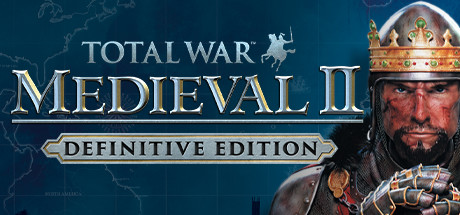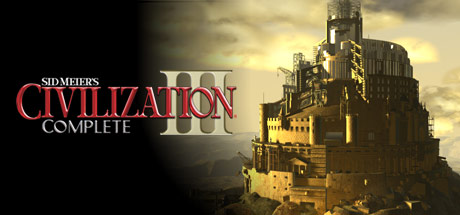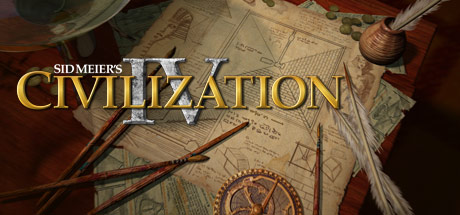Master of Orion 2 Reviews
Forge an empire in a universe where population growth is stripping away planetary resources. Colonize unknown planets and trade with other races for their knowledge.
| App ID | 410980 |
| App Type | GAME |
| Developers | SimTex |
| Publishers | Wargaming Labs |
| Categories | Single-player, Multi-player |
| Genres | Strategy |
| Release Date | 25 Feb, 2016 |
| Platforms | Windows, Mac, Linux |
| Supported Languages | French, English, German |

1 569 Total Reviews
1 514 Positive Reviews
55 Negative Reviews
Very Positive Score
Master of Orion 2 has garnered a total of 1 569 reviews, with 1 514 positive reviews and 55 negative reviews, resulting in a ‘Very Positive’ overall score.
Reviews Chart
Chart above illustrates the trend of feedback for Master of Orion 2 over time, showcasing the dynamic changes in player opinions as new updates and features have been introduced. This visual representation helps to understand the game's reception and how it has evolved.
Recent Steam Reviews
This section displays the 10 most recent Steam reviews for the game, showcasing a mix of player experiences and sentiments. Each review summary includes the total playtime along with the number of thumbs-up and thumbs-down reactions, clearly indicating the community's feedback
Playtime:
968 minutes
One of my favorite games of all time
👍 : 6 |
😃 : 0
Positive
Playtime:
132547 minutes
This one works great in linux and windows. I think I made a small tweak to setup script to play it on a raspberry pi with steam even.
👍 : 2 |
😃 : 0
Positive
Playtime:
529 minutes
This is the GOAT of the 4X strategy games. Sure, its ancient with very few resources to help new players but it it that sweet spot between complexity and simplicity all the way back in the 1996 and everyone else has been trying and failing to copy the game ever since. DO NOT PLAY MOO3, that game is garbage compared to this masterpiece.
👍 : 2 |
😃 : 0
Positive
Playtime:
969 minutes
A classic relax and maybe multiplayer strategy game. Turn based and you can opt out of tactical ship to ship combat. I like the naval aspect of boarding enemy ships. Strategically, you get a good feel for plotting and planning, good in business. Highly recommended
👍 : 0 |
😃 : 0
Positive
Playtime:
131 minutes
surprisingly and insanely good. I don't know what it is about the game though but something about it makes it really hard to get it to click with me. So even though I was having a good time, I need a breather before approaching the game again. Not sure what it is, but there's just something about the way the game is laid out that makes it both simplistic but complex that makes it nearly difficult to look at for me. Not sure what it is but it seems to just be a matter of getting the game to grow on me.
👍 : 0 |
😃 : 0
Positive
Playtime:
9506 minutes
Good strategy game without being complicated
👍 : 1 |
😃 : 0
Positive
Playtime:
138 minutes
This game was awesome when it came out and is still fun today. Especially in multiplayer. Just go to moo2mod and download fan patch. Then to play multiplayer select client in network and connect to moo2.dopefish.com.
Highly recommended!
👍 : 1 |
😃 : 0
Positive
Playtime:
1395 minutes
Master of Orion II: Battle at Antares, available on Steam as part of the Master of Orion franchise bundle, remains a gold standard in the 4X (explore, expand, exploit, exterminate) strategy genre and a towering achievement in turn-based space empire games. Originally released in 1996 and developed by Simtex, the game continues to enjoy cult status for its strategic depth, customization, and addicting gameplay loop. Despite its age, Master of Orion II (often abbreviated as MoO2) remains one of the most beloved and meticulously designed titles in its class, inspiring countless successors and modern reinterpretations.
From the outset, the game puts players in charge of a fledgling spacefaring race, tasked with building an interstellar empire through colonization, diplomacy, economic growth, and, when necessary, military conquest. One of its most lauded features is the race customization system. While there are several predefined species, each with unique traits and backgrounds, players are also given the tools to create custom races, choosing from a deep pool of perks and drawbacks that shape everything from production efficiency to government structure. This system adds an enormous amount of replayability, as each combination yields different strategies and synergies.
The galaxy map is where the empire-building unfolds. MoO2 balances exploration and expansion elegantly, with planets scattered across a randomly generated universe. Not all worlds are created equal—some are rich in resources, others are barren or hostile, and many are guarded by alien monsters or rival claimants. Managing colonies is a nuanced process. Players allocate citizens to research, farming, or industry, develop infrastructure, build planetary defenses, and manage morale. Unlike many 4X games that abstract planetary development, MoO2 drills down into the details, encouraging micromanagement without feeling tedious. The colony management system is both accessible and rich with complexity.
The research tree is another highlight of the game’s design. Technologies are spread across multiple disciplines—physics, biology, computers, propulsion, etc.—and often, players must make exclusive choices between powerful techs in the same branch. This forces tough strategic decisions and ensures that no two playthroughs unfold identically. Do you pick advanced shields at the cost of a powerful beam weapon? Do you prioritize terraforming over espionage? These questions shape the empire's strengths and weaknesses in both the short and long term, offering a satisfying sense of progression and identity.
MoO2’s tactical combat system, set in a separate turn-based grid space, gives players direct control over ship engagements. Designing and customizing ships is essential, with each vessel capable of housing a variety of weapons, shields, engines, and special systems. There’s a gratifying balance between creating diverse fleets and specialized roles—stealthy scouts, missile boats, beam-focused battleships, and carriers all have their place depending on the player's strategy and the tech path they've pursued. Combat is deliberate and rewarding, with positioning, fleet composition, and ship design all contributing to outcomes. The battles are not merely spectacles—they are strategic puzzles that require foresight and tactical acuity.
Diplomacy in Master of Orion II is functional, if not particularly deep by modern standards. Players can form alliances, trade technology, negotiate treaties, and attempt to manipulate interstellar politics. AI opponents have distinct personalities and can be either trustworthy or treacherous depending on circumstances. Espionage plays a major role as well—agents can be used to steal technology, sabotage colonies, or stir unrest. While diplomacy is not the game’s strongest pillar, it provides essential interaction between players and serves as a necessary tool for survival in a galaxy populated by competitors vying for dominance or cooperation.
Victory can be achieved through several avenues—military conquest, diplomatic success, technological supremacy, or defeating the powerful Antaran menace, a mysterious alien race that periodically attacks empires and serves as the game’s ultimate challenge. This variety in win conditions adds strategic depth and long-term goals that players must plan for from the early stages of the game. Defeating the Antarans requires advanced tech and a powerful fleet, effectively acting as a late-game pressure mechanic that ensures no player can rest on their laurels.
Graphically, the game shows its age, with pixelated sprites and simple animations. However, the 2D art retains a certain charm, and the interface, though old-fashioned, is surprisingly intuitive for such a complex game. The soundtrack is moody and atmospheric, with each race having its own theme, contributing to immersion and personality. Sound effects are minimal but effective, and while the voice acting for racial advisors is campy by today’s standards, it adds a layer of flavor to the game’s sci-fi universe.
Despite its vintage, Master of Orion II still holds up because its core mechanics are timeless. It delivers a satisfying balance of empire management, scientific advancement, tactical warfare, and galactic diplomacy that few games have managed to replicate with such harmony. There are rough edges—such as the sometimes questionable AI or the steep learning curve for newcomers—but these are minor compared to the immense depth and replay value the game offers. For fans of 4X strategy, Master of Orion II isn’t just a classic—it’s essential history, and a testament to design excellence that continues to resonate decades later.
Rating: 9/10
👍 : 9 |
😃 : 0
Positive
Playtime:
9335 minutes
The Legend. The question remains: How is this so good?
Endless replay value—even after mastering Impossible mode with ease.
I tweaked the DOSBox settings for convenience, but it still plays just like it did back in the day.
9.98/10
👍 : 13 |
😃 : 0
Positive







